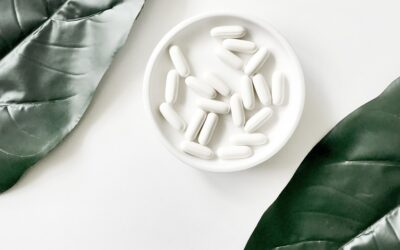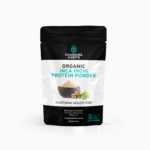The public seems to be becoming much more aware about the dangers of overusing antibiotics, which is music to my ears. However, antibiotics are still being over-prescribed and used when they aren’t absolutely essential.
Of course, antibiotics can be needed in life-threatening situations. But it is always a good idea to question and research if they are completely necessary when prescribed in other situations and make an informed decision.
I understand that sometimes it can feel risky when you say ‘no’ to conventional medicines, like antibiotics, and use alternatives. But your body is extremely capable when it comes to healing. My partner and I have both had minor surgeries in the past where antibiotics are prescribed and heavily pushed as a ‘precautionary’ or even a treatment method. While it was at our own risk, we chose not to take the antibiotics and recovered perfectly. Instead, we supported our immune system and used herbal alternatives (with caution – it is important to support your body during these times in many ways, discussed below).
Antibiotics: What’s the Harm?
So why do we need to think carefully when it comes to antibiotics? Antibiotics can have a detrimental impact on your beneficial gut microbiota. Your gut microbiota includes a vast array of microbes, which make up over 80% of your immune system. They produce essential neurotransmitters like serotonin, melatonin and dopamine, nutrients like B vitamins and vitamin K, assist in the digestion and absorption of nutrients and much more. Antibiotics are designed to kill microbes, and when we know how critical microbes are to our health, it is clear that this can lead to a huge decline in health.
Unfortunately, heavy use of antibiotics can lead to immune issues like autoimmune diseases, skin rashes, digestive problems, mental issues, insomnia and so on, that can be difficult to overcome once the damage has been done. Although it is possible to rebuild a healthy microbiota over time, much care needs to be taken with diet, herbs and particular beneficial probiotics suitable for the individual.
Natural Alternatives to Antibiotics
We will all have a time in our lives where antimicrobial support will be needed, so it is important to know what your options are. It is recommended, however, that you seek professional advice when using even the natural alternatives listed below as they still hold many potent properties that may not be suitable for you. It is also important to note that these alternatives should not be used in therapeutic amounts for very long periods of time, as they may still impact your beneficial microbes depending on which herbal formula you use.
Natural antibiotic alternatives include:
- Goldenseal – its high berberine content makes it a highly effective antimicrobial and immune stimulant and one of the top selling products in North America. The most phenomenal research I have seen with berberine extracts in conjunction with other herbs suggests that it is just as effective as a pharmaceutical antibiotic when used to treat small intestinal bacterial overgrowth (SIBO), which many individuals suffer with.
- Uva ursi – uva ursi has been shown to be highly effective at treating many forms of gut microbial overgrowths, which is promising (when I receive stool test results from clients, I find that many of their particular microbial overgrowths are sensitive to uva ursi). It has also been shown to be an effective treatment against urinary tract infections.
- Garlic – in high concentrations is an effective antimicrobial, mainly due to the compound allicin, which is present in freshly crushed garlic or in some patented products. It has been shown to be effective against microbes such as Escherichia coli, Giardia lamblia and Entamoeba histolytica.
- Oil of oregano – has antibacterial, antiparasitic, antiviral and antifungal properties, mainly due to its potent component, carvacol. When looking for a product, choose one that contains ‘80% carvacol’ to ensure it holds high therapeutic properties.
- Ginger – ginger has potent antiparasitic, antiviral and antibacterial properties, though it is important to note that it is best fresh and not dried. Try juicing fresh ginger and add it to coconut water kefir or green juices.
- Black cumin seed oil – I recommend this regularly to some clients going through gut healing protocols as it has potent antifungal and antibacterial properties due to its compounds such as thymol and thymoquinone. It is also effective against some ‘superbugs’ that are showing to be resistant to pharmaceutical antibiotics.
- Thyme oil – like black cumin seed oil, thyme oil has been shown to be effective against some antibiotic-resistant bacteria. Thyme oil is considered an antiseptic as it has properties that fight against bacteria, fungus, parasites and viruses.
- Olive leaf – has antimicrobial properties and can also inhibit the biofilm formation of some microbes. Biofilm is the film that covers and protects pathogens, so it is important to break this down.
Using Food to Support Your Immune System During the Healing Process
It is important to think about how you can enhance your immune system for the long-term, rather than simply focusing on what you can kill the bugs with now. Herbs like echinacea and turmeric are fantastic support when it comes to enhancing your immune system, along with foods rich in vitamin C like camu camu, fermented foods, parsley, and fruits like citrus fruits, strawberries and papayas.
It is also a good idea to consume an anti-inflammatory diet during times of healing as this will ensure your immune system can focus on the area that requires attention. During this time, try your best to avoid the main inflammatory foods like gluten, dairy, corn, soy and any other colours, preservatives, additives and numbers.
I wish you all the very best with your healing!
What are your experiences with/without antibiotics? What has worked for you in the past?






0 Comments